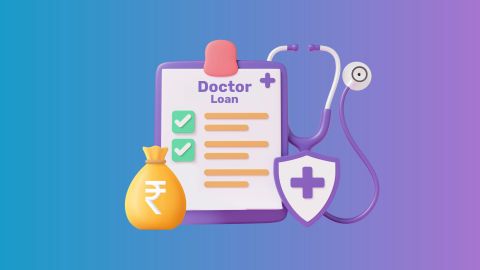Why is Advanced Cardiac Life Support (ACLS) performed?
ACLS is performed to prevent death in patients experiencing:
- Cardiac arrest: When the heart stops pumping blood effectively.
- Heart attack: Damage to heart muscles due to restricted blood flow.
- Stroke: Reduced blood supply to the brain, causing brain cells to die.
- Severe arrhythmias: Life-threatening abnormal heart rhythms.
- Smoke inhalation: Inhaling toxic fumes can lead to respiratory and cardiac arrest.
Each of these conditions requires immediate medical attention and the application of ACLS to improve the patient’s chance of survival.
Scope of Advanced Cardiac Life Support (ACLS)
The table below outlines the main domains and key components covered under Advanced Cardiac Life Support:
ACLS Domain
|
Key Scope Components
|
Foundational skills
|
High-quality BLS, timely defibrillation, effective CPR techniques including correct rate, depth, recoil, and minimal pauses.
|
Airway management
|
Bag–mask ventilation, use of oral or nasal airways, placement of supraglottic devices (LMA, King airway), and endotracheal intubation.
|
Rhythm recognition
|
Identifying critical arrhythmias such as VF, pulseless VT, asystole, PEA, and unstable tachycardias or bradycardias.
|
Vascular access
|
Establishing IV access or using intraosseous (IO) access when IV attempts are unsuccessful.
|
Pharmacology
|
Use of emergency medications including epinephrine, amiodarone, lidocaine, atropine, adenosine, and sodium bicarbonate.
|
Electrical therapy
|
Performing manual defibrillation, synchronized cardioversion, and transcutaneous pacing.
|
Differential diagnosis
|
Systematic evaluation and management of reversible causes, commonly referred to as the “Hs and Ts.”
|
Team dynamics
|
Structured leadership, clear communication, closed-loop feedback, and efficient crisis resource management.
|
Special resuscitation
|
Care protocols for acute coronary syndromes, stroke management, post-cardiac arrest treatment, and targeted temperature management.
|
Who performs Advanced Cardiac Life Support (ACLS)?
ACLS is performed by trained healthcare professionals, typically in hospital emergency departments or by paramedics at the scene of a medical emergency. Physicians, nurses, and other healthcare professionals, such as:
- Cardiologists
- Emergency room doctors
- Anaesthesiologists
- Paramedics
These professionals are certified in ACLS procedures and are trained to handle high-pressure situations. Thoracic surgeons may also participate in administering ACLS in cases of severe cardiac complications.
How is Advanced Cardiac Life Support (ACLS) performed?
ACLS is performed using a structured approach that begins with Basic Life Support (BLS) procedures like CPR and progresses to more advanced techniques. Here are some key components:
- Airway management: Inserting advanced airway devices to maintain oxygen flow.
- Electrical therapy: Using defibrillators to restore a normal heart rhythm.
- Pharmacology: Administering drugs to improve blood flow or manage heart rhythm.
- Monitoring: Continuous observation using ECG and other medical equipment to assess the patient’s condition and response to treatments.
Types of Advanced Cardiac Life Support treatments
ACLS treatments are tailored to the specific emergency that the patient faces. Common types of ACLS treatments include:
- Electrical cardioversion: Administering controlled shocks to correct abnormal heart rhythms.
- Medications: Administering drugs to address heart attacks, strokes, or arrhythmias.
- Chest compressions: Maintaining blood circulation through manual compressions in cases of cardiac arrest.
- Advanced airway management: Inserting tubes to ensure that the airway remains open and clear.
ACLS Certification
ACLS (Advanced Cardiovascular Life Support) certification trains healthcare professionals to manage serious cardiopulmonary emergencies such as cardiac arrest. It expands on Basic Life Support (BLS) by teaching advanced assessment, airway management, treatment of stroke and acute coronary syndromes, and coordinated team-based resuscitation through practical simulations. The certification remains valid for two years and requires completing both online coursework and an in-person skills evaluation.
Essential medical equipment for ACLS
Administering ACLS requires specialised medical equipment. Some essential tools include:
- Defibrillator: To deliver electrical shocks to restore the heart rhythm.
- ECG monitors: To continuously observe the heart's electrical activity.
- Advanced airway devices: To manage the patient’s breathing.
- Medications: Intravenous drugs like epinephrine, amiodarone, and atropine to stabilise heart function.
- Suction devices: To clear airways and facilitate proper breathing.
Having access to this equipment is essential in emergencies, and securing financing can help healthcare providers stay prepared.
Potential Risks Associated with Advanced Cardiac Life Support (ACLS)
While ACLS is crucial in saving lives, it does carry some risks:
- Broken ribs: Intense chest compressions may cause rib fractures.
- Lung injuries: Improper airway management can lead to lung damage.
- Medication side effects: Drugs used during ACLS may cause adverse reactions, such as irregular heartbeats or allergic reactions.
- Brain damage: Prolonged lack of oxygen to the brain can result in irreversible damage, even with successful resuscitation.
It is important to weigh the benefits against these risks when performing ACLS, but often the procedure is essential to give the patient a fighting chance.
Conclusion
ACLS is an essential, life-saving technique that plays a critical role in emergency medicine. Doctors and healthcare providers must be well versed in the procedure and have access to the necessary medical equipment. If you are a doctor or medical professional considering upgrading your facilities or investing in doctor loan or professional loan options, Bajaj Finance can help provide you with the healthcare finance solutions you need to enhance your services. Having said that, before applying, it’s important to check your doctor loan eligibility to understand the basic requirements and documentation involved. And, when planning your finances, always review the applicable doctor loan interest rate to make a well-informed borrowing decision that aligns with your repayment capacity.





